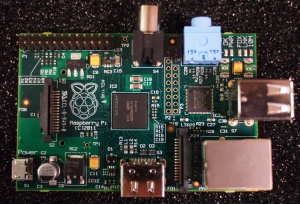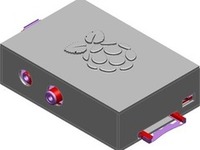The Linux world stands still for no one. New releases of Fedora, Ubuntu and others are always in the works, each a unique mixture of upstream software versions and patches. It takes more than just a kernel to make an operating system. This is why each version of Linux is a little bit different even if almost all the software comes from the same sources.
Behind the scenes many people are involved in the releases, making all these parts work together smoothly. While all Linux distributions organize their own events the Ubuntu community has the most opportunities for public participation. The reason Ubuntu and Canonical was founded in 2004 by Mark Shuttleworth and his team was to create an easy-to-use Linux desktop based on Debian. For example, during the six months after an Ubuntu release the community puts on quite a range of events in a synchronized cadence. Some events are focused on helping newcomers.
As we approach the ’12 October release of Ubuntu 12.10, code name Quantal Quetzal, release parties are being planned by country and (in the US) state wide local community (LoCo) teams. Each volunteer run LoCo team participates in local events representing Ubuntu. Some teams host Ubuntu Hours. Currently the California Team hosts monthly Ubuntu Hours in San Francisco, San Jose, Mt. View, Palo Alto, Santa Cruz, Pasadena and San Diego. Volunteer team members sometimes give talks at local user groups (like BerkeleyLUG) about the new features in new releases based on the prepared release notes like these for 12.04. LoCo teams help enthusiasts collaborate with one another and are an on ramp for participation in the broader Ubuntu community. The California team holds IRC meetings every other Sunday evening at 7 PM and keeps a list of projects.
Shortly after an Ubuntu release, the next Ubuntu Developer Summit is held to plan the following release in six months. UDS-R in Copenhagen held Oct 29 – Nov 1, 2012 will plan for Ubuntu 13.04. Attendance is free and online participation are available at no charge. Travel and hotel expenses the responsibility of the attendee. Both in person and remote participation is highly encouraged. Some online IRC based events are hosted during each six month release cycle: App Developer Week, Developer week for packaging and software developers.
Global Jams are held online and in small group meetings where community members are encouraged to contribute to Ubuntu in some way of their choosing. The California Team hosted an event on Sept 7th in San Francisco at the Wikimedia Foundation offices. For full time Ubuntu developers and Canonical staff sprints are held to work together supplementing the usual remote work style.
Annual and one time events held in California and beyond include:
I hope this post makes people aware of the many ways one can contribute back in some way making the operating system we use a little better. Berkeley LUG meetings continue every second and fourth Sunday each month at Bobby Gs Pizzeria from noon to three in Berkeley. Please join us this Sunday.

